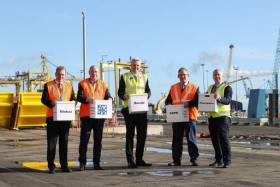Displaying items by tag: Higher Since Brexit Vote
Exporters' from Ireland to UK: Reliance Higher Since Brexit Vote
#Ports&Shipping - Exporters from Ireland writes the Independent.ie are pumping more of their products into the UK despite Brexit, a survey shows.
Around the time of UK's EU referendum in June 2016, just under a third of exporters said they sold a quarter of their produce into the UK market.
That's now risen to 44pc of exporters. And 41pc say they plan to increase UK sales further in the next six months, according to the latest assessment from the Irish Exporters Association (IEA).
In the wake of the UK referendum in June 2016, the IEA surveyed its members views on Brexit's impact.
In January, it repeated the study and has now compared the results.
"What our analysis shows is the resilience of the Irish export industry," Simon McKeever, Irish Exporters Association chief executive, said.
About 93pc of IEA members do business with the UK; for most that accounts for less than a quarter of their sales, although the UK is becoming increasingly important since the initial survey.
Four out of 10 exporter say they plan to increase UK sales over the next six months, just 3pc say they'll reduce them, and 57pc say they'll maintain current levels.
For further reading on the survey click here.




























































